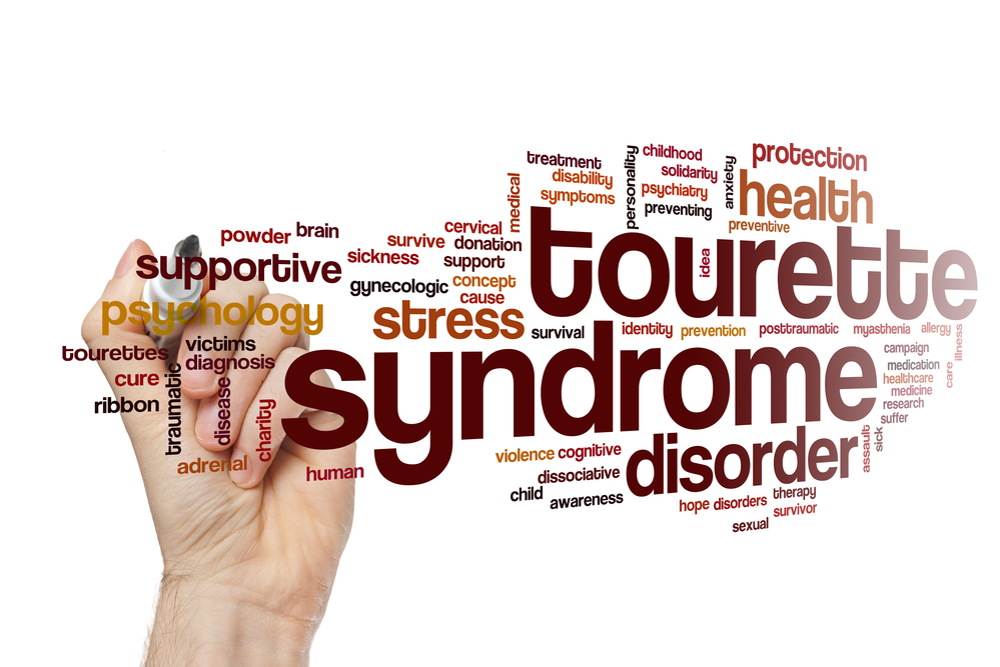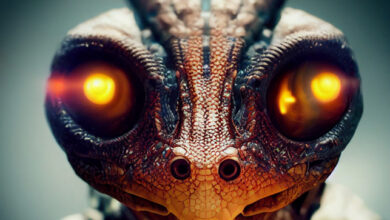A Treatment May Be Here for Tourette Syndrome

One of the most unusual and unfairly maligned diseases is Tourette syndrome – a neurodevelopmental disorder that causes unmanageable motor tics like blinking, coughing, throat clearing, sniffing, and facial movements, but is best known for forcing a small number of sufferers to uncontrollably say obscene words, derogatory remarks and other inappropriate or socially unacceptable utterances. While the obscenity screaming part (known medically as coprolalia) is rare, the disease is not – it is now estimated that about 1% of school-age children and adolescents suffer from Tourette syndrome, and a small number take it with them into adulthood. One of these is Scottish singer Lewis Capaldi, who is famous for his foul-mouthed videos. Unfortunately, there is no test for Tourette syndrome, no known cure and no treatment or medication for keeping it in check … until now. A wearable device for relieving the tics has been developed and Lewis Capaldi is one of the test subjects. If it works, will Capaldi still be able to sing the songs on “Divinely Uninspired to a Hellish Extent”?

“I have Tourette’s, I’ve always had it, apparently. I do the shoulder twitch quite a lot. And you see underneath every TikTok and stuff, people are like, ‘why is he twitching?’, which is fine. Curiosity is fine.”
Scottish singer-songwriter Lewis Capaldi came into the public eye in 2019 with his single, “Someone You Loved,” which charted in both the UK and the U.S., was nominated at the 62nd Annual Grammy Awards for Song of the Year and won the 2020 Brit Award for Song of the Year. Those who watch the videos of the now 26-year-old singer noticed his tics and twitches, which some might have thought were part of his act. However, others, including the singer himself, thought he might have “some horrible degenerative disease.” He noted in interviews that it is painful and is worse when he’s excited – unfortunately, excitement is part of his job as a rock singer. In 2022, a doctor finally diagnosed Capaldi’s symptoms as Tourette syndrome.
“I haven’t really learned much about it. I’m learning. I’ve got botox on my shoulders to stop it moving.”
Despite the fact that so many people (78 million worldwide) are thought to suffer from Tourette syndrome, not much – outside of the uncontrollable swearing and twitching – is known about it by the general public or even by sufferers such as Capaldi. Tourette syndrome is named for Georges Gilles de la Tourette, who in 1885 published his research on nine patients of his mentor, French neurologist Jean-Martin Charcot, who had a “convulsive tic disorder”. Tourette called it “maladie des tics” and Charcot renamed the syndrome “Gilles de la Tourette’s illness” in his honor. While its exact cause is unknown, Tourette syndrome is believed to be both genetic and the result of environmental factors that affect neural circuits between the basal ganglia and related structures in the brain. It is classified as a motor disorder of the nervous system that causes abnormal and involuntary movements. It is difficult to diagnose because other diseases and conditions can cause motor and vocal tics, so a patient must have a record of multiple motor tics and at least one vocal tic to be present for at least a year before being confirmed as having Tourette syndrome. Vocal tics are not just the swearing and outbursts – they include twitches in the laryngeal, pharyngeal, oral, nasal and respiratory muscles used to produce sounds. As mentioned before, there is no cure for Tourette syndrome and no safe and effective treatment that doesn’t involve drugs.
“People with Tourette’s syndrome said to us they wanted a safe and effective treatment that they could use outside the clinic that didn’t involve drugs but gave them control over their tics. Hopefully that’s what this device will give them.”
The device is the “Neupulse” from Neutotherapeutics Ltd, a spinoff of the University of Nottingham where it was developed. According to a university press release, Neupulse is a watch-like device worn on the wrist which delivers mild bursts of electrical stimulation directly to the nerves in the wrist which it says will influence the brain networks involved in generating tics and help to reduce and control them. University researchers led by Professor Stephen Jackson have been conducting double-blind clinical trials of the device and say the results are encouraging, even though the Neupulse is still in the prototype stage. The device is paired with a companion smartphone app, NeuTrack App, which gives the patient a review of their symptoms, a record of their tic episodes, and a way to discern what may be triggering them. Most importantly, the Neupulse is said to give relief from the pain, discomfort and distress of Tourette syndrome. That was confirmed when Lewis Capaldi visited the clinic before a concert and tried it out.
“The results were remarkable – Lewis stated that the stimulation made him feel calmer and the device was clearly suppressed the head and shoulder tics which can be quite painful for him.”
Dr. Jackson reported that Capaldi was pleased with the relief the Neupulse gave him – he rewarded the team with selfies and tickets to his concert that night in in Nottingham. While the number of people in the trial has been small, the success rate has been impressive. For a more technical explanation, the team had been looking into non-invasive brain stimulation techniques to modulate brain network functions. One way of doing this is through ‘entrainment’ – a temporal locking process in which one system’s motion or signal frequency entrains the frequency of another system. Intrinsic oscillatory activity or brain rhythms are connected with many brain health conditions and the team suspected Tourette syndrome might be one. The current techniques for brain stimulation such as transcranial magnetic stimulation are not suitable for use outside of the clinic or for use with very young children. That led to the development of the wrist-worn Neupulse. Anyone interested in learning more about the device and the research, or even participating in future tests, can visit www.neupulse.co.uk.

The Neupulse device may not be available until 2025 but it seems that the “remarkable” results experienced by Lewis Capaldi indicate it will be a success. His help in promoting the Neupulse as well as demystifying and destigmatizing Tourette syndrome will go a long way in bringing relief to millions who suffer from the tics and twitches … and even the swearing and outbursts.
Lewis Capaldi’s new tour is called the “Broken By Desire To Be Heavenly Sent” tour. Could he have subconsciously be referring to his eventual relief from Tourette syndrome?




